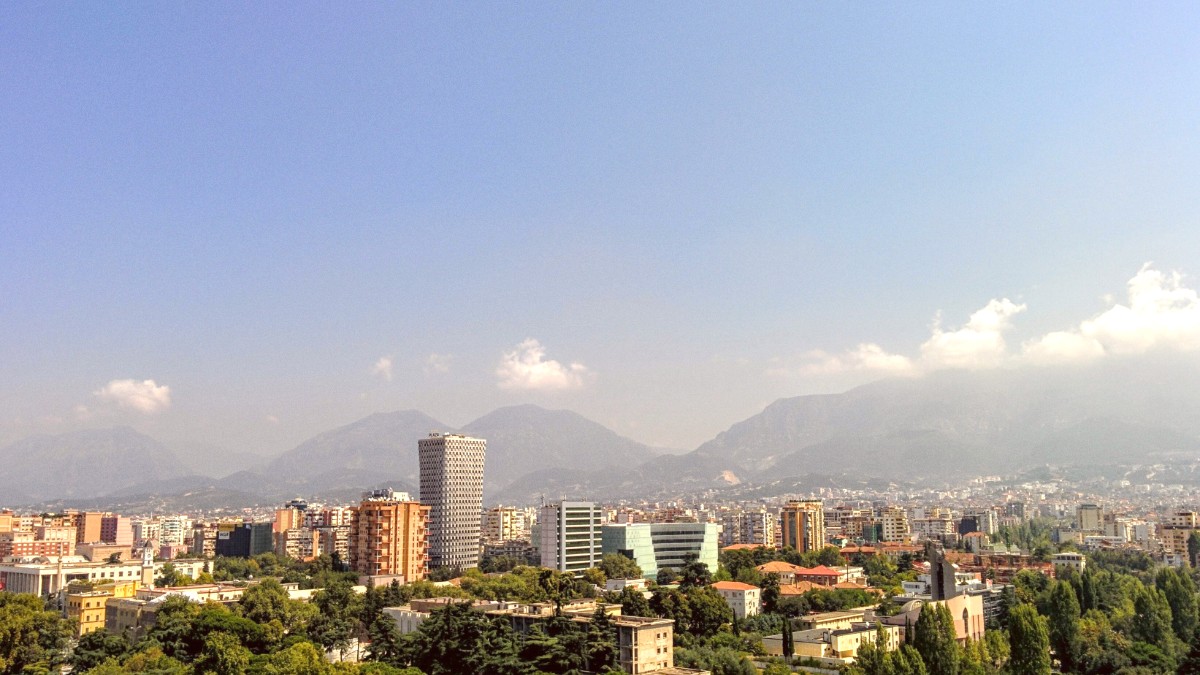
Albania
Olive oil, garlic, onions, tomatoes, and various peppers form the base of many dishes. Eggplant and cucumber appear frequently. Fresh herbs like oregano, mint, parsley, and dill are useful.
Lamb, beef, and chicken are common meats. Seafood also appears due to proximity to the Adriatic. Flavors lean savory, balancing fresh ingredients and slow-cooked meats, typically not overly spicy.
Tirana's cuisine reflects a melting pot of regional influences due to internal migration.
You find hearty stews from the north, rich baked dishes from the central region, and lighter, vegetable-focused meals from the south.
Historically, meals were seasonal, using what the land offered, and this tradition largely continues today.
A thick, savory stew with peppers, tomatoes, onions, cottage cheese (gjizë), and often liver. Vegetarian versions also exist.
Find it in traditional Albanian restaurants, often served with bread.
A national dish: baked lamb (or chicken) and rice covered with a savory yogurt and egg mixture that bakes to a golden crust.
Widely available in traditional eateries; a rich and creamy casserole.
Flaky, savory pastry with various fillings: cheese, spinach, minced meat, or pumpkin. A popular snack or meal.
Ubiquitous at bakeries ("byrektore") and street stalls.
A "three-milk cake" – a soft sponge cake soaked in a mixture of three milks, often topped with caramel glaze.
Rich, sweet pastry of filo dough, chopped nuts, and syrup/honey. An Ottoman influence.
Tirana has establishments that elevate traditional Albanian cuisine or offer sophisticated international flavors.
These restaurants provide excellent value and a chance to savor local flavors without excessive cost.
Quick and delicious bites for affordable and authentic meals.
Tirana has numerous restaurants serving Italian, Turkish, Chinese, Indian, sushi, and other global flavors.
Many found in the Blloku district and the city center.
This wide range caters to varied tastes, offering alternatives to traditional Albanian fare.
Explore options for casual meals or specific cravings.
Strong alcoholic spirit, digestif.
Well-known Albanian brandy.
Local beer for refreshment.
Strong, rich, integral to social culture.
Halal meat is often available by default or by request in a Muslim-majority country. Kosher options are very limited.
Inquire locally for specific halal butcher shops or restaurants.
Improving but caution needed. Dedicated gluten-free menus are not commonplace.
Carry a Translation card with your specific dietary needs in Albanian.
Inform restaurant staff about your allergies or requirements clearly and confirm ingredients before ordering.
With a little preparation, you can savor the city’s culinary delights regardless of your dietary requirements.
Several local companies and culinary schools in Tirana offer cooking classes.
Popular tours guide you through Pazari i Ri and various traditional eateries.
Less common within Tirana. Day trips to surrounding rural areas (e.g., Cobo Winery near Berat) offer insights into local viticulture.
Culinary experiences here offer a fuller appreciation for Albanian food traditions.
It's a way to learn about the journey of ingredients from farm to table.
These activities contribute to a richer understanding of Albania's heritage and daily life.
Food culture is deeply woven into the fabric of the country's identity.
The New Bazaar is a place for both local produce and street food.
Fërgesë Tirane and Tavë Kosi are essential Albanian culinary experiences.
Dining at family-run establishments contributes directly to the local community.